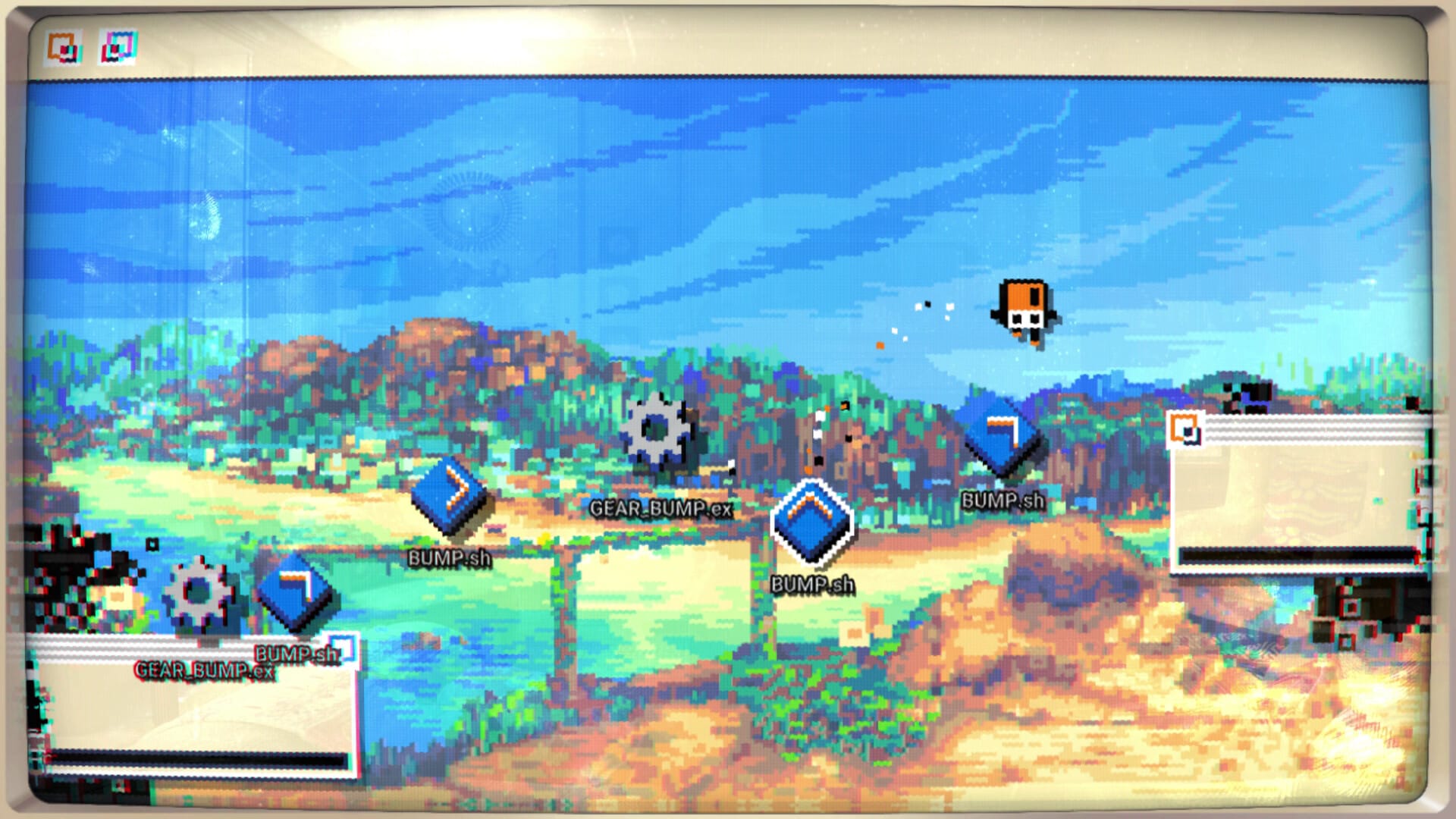MainFrames follows Floppy, a newly installed program who seemingly has no clear function. They arrive in the safety of their floppy disk before suddenly tumbling into the computer network with no clear instructions, left to wander the network as they please. Strangely, the computers are slowly falling apart as Floppy roams around, visual glitches and corrupted sections becoming more common the more time Floppy spends loaded on the mainframe.
It’s a story of finding one’s place. All the computer processes Floppy meets have a clear function and perform them dutifully. Floppy is the odd one out, installed but with no clear directive. They’re good at gathering people and directing them toward the break room (even computer processes need a break from work) and helping whoever they come across, which is meaningful, but not the sort of thing the rest of the computer’s inhabitants have in mind when they say Floppy will figure out their role.
As MainFrames is set inside a computer, you explore via desktops with file and program windows open for you to leap across. There’s plenty of charming touches that comes from the setting, like the intro of each level having a music player start that level’s music when you interact with it, or the weather application manifesting as a game of chance you can partake in (gotta predict the weather somehow). You can sometimes move the windows around with the right stick as well or swap between which is active with the bumpers, which opens fun, if slightly tricky, ways of moving about screens, such as moving the cursor between windows to act as springboards or alter the gravity of the screen when you make contact. The majority of MainFrames is simple; it’s a breezy kind of platformer with most levels demanding very little of you, focused more on the simple pleasures of a good jump, but it’s able to get devious when it wants to.

For example, on one screen I had to move a window to reveal bounce pads hidden from view as I moved forward, requiring me to control both Floppy and the selected window carefully and quickly. In another, I had to constantly swap between which window was highlighted to activate the next gravitational shift. If I was too slow, I’d fall past the borders of the screen and have to start over. They’re simple challenges on paper, the sort of ideas many games have played with before, but MainFrames uses them well in conjunction with its setting to make each part of every stage a delight. It’s got a lot of charm and personality that comes through splendidly.
It’s also a really good feeling game. A good jump is key to any platformer and MainFrames nails it. Floppy can only jump once, but they can extend their air time by spinning in the air. What makes this notable is that you can use it to slip through narrow gaps and stall your descent. The specific cases where you need to make the most of these functions are few, but it does create some fun challenges when they arise. Moving through each screen is joyful. The level design constantly highlights how good movement feels. Even the simplest most easygoing rooms have something that makes roaming through them enjoyable. It rarely engages in any kind of daunting challenge that requires pin-point precision, but when it does, it demonstrates the strength of the game’s fundamentals well.
The majority of the challenge comes in the optional rooms where you help a fellow daemon get to an elevator. Each moves in different ways. Some move in step with you, effectively making you control two characters instead of one. Others move on their own, floating around the screen until they make contact with a surface and bounce off it or running around the edges of a window until you select it and launch them onward. Navigating the obstacle courses they inhabit is a consistent and welcome challenge, a self-contained puzzle room that breaks up the constant forward momentum nicely.
It’s a very efficient game. It never lingers on any one idea too long, mixing and matching them in creative ways as the game goes on. MainFrames makes the most of each level’s core concept in its short runtime, showing just enough restraint to not push any one concept too far. It’s very easy for games to push their length past their natural end points, where everything starts to feel stretched for time, so it’s always welcome whenever one demonstrates the strengths of a clear and smart small scope, which MainFrames does wonderfully.
Callum Rakestraw (he/him) is the Reviews Editor at Entertainum. You can find him on Bluesky, Mastodon, and his blog.





